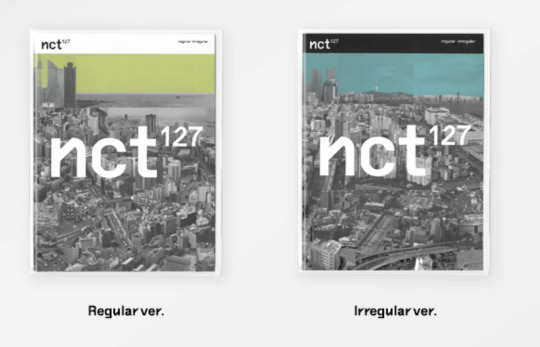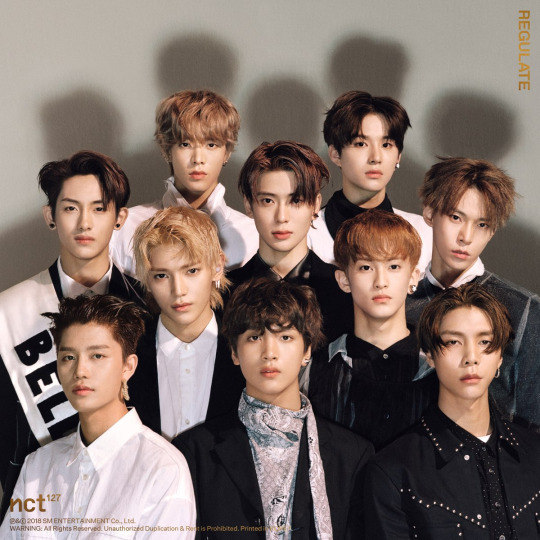#UN AI regulation
Explore tagged Tumblr posts
Text
Ethical Dilemmas in AI Warfare: A Case for Regulation
Introduction: The Ethical Quandaries of AI in Warfare
As artificial intelligence (AI) continues to evolve, its application in warfare presents unprecedented ethical dilemmas. The use of AI-driven autonomous weapon systems (AWS) and other military AI technologies blurs the line between human control and machine decision-making. This raises concerns about accountability, the distinction between combatants and civilians, and compliance with international humanitarian laws (IHL). In response, several international efforts are underway to regulate AI in warfare, yet nations like India and China exhibit different approaches to AI governance in military contexts.
International Efforts to Regulate AI in Conflict
Global bodies, such as the United Nations, have initiated discussions around the development and regulation of Lethal Autonomous Weapon Systems (LAWS). The Convention on Certain Conventional Weapons (CCW), which focuses on banning inhumane and indiscriminate weapons, has seen significant debate over LAWS. However, despite growing concern, no binding agreement has been reached on the use of autonomous weapons. While many nations push for "meaningful human control" over AI systems in warfare, there remains a lack of consensus on how to implement such controls effectively.
The ethical concerns of deploying AI in warfare revolve around three main principles: the ability of machines to distinguish between combatants and civilians (Principle of Distinction), proportionality in attacks, and accountability for violations of IHL. Without clear regulations, these ethical dilemmas remain unresolved, posing risks to both human rights and global security.
India and China’s Positions on International AI Governance
India’s Approach: Ethical and Inclusive AI
India has advocated for responsible AI development, stressing the need for ethical frameworks that prioritize human rights and international norms. As a founding member of the Global Partnership on Artificial Intelligence (GPAI), India has aligned itself with nations that promote responsible AI grounded in transparency, diversity, and inclusivity. India's stance in international forums has been cautious, emphasizing the need for human control in military AI applications and adherence to international laws like the Geneva Conventions. India’s approach aims to balance AI development with a focus on protecting individual privacy and upholding ethical standards.
However, India’s military applications of AI are still in the early stages of development, and while India participates in the dialogue on LAWS, it has not committed to a clear regulatory framework for AI in warfare. India's involvement in global governance forums like the GPAI reflects its intent to play an active role in shaping international standards, yet its domestic capabilities and AI readiness in the defense sector need further strengthening.
China’s Approach: AI for Strategic Dominance
In contrast, China’s AI strategy is driven by its pursuit of global dominance in technology and military power. China's "New Generation Artificial Intelligence Development Plan" (2017) explicitly calls for integrating AI across all sectors, including the military. This includes the development of autonomous systems that enhance China's military capabilities in surveillance, cyber warfare, and autonomous weapons. China's approach to AI governance emphasizes national security and technological leadership, with significant state investment in AI research, especially in defense.
While China participates in international AI discussions, it has been more reluctant to commit to restrictive regulations on LAWS. China's participation in forums like the ISO/IEC Joint Technical Committee for AI standards reveals its intent to influence international AI governance in ways that align with its strategic interests. China's reluctance to adopt stringent ethical constraints on military AI reflects its broader ambitions of using AI to achieve technological superiority, even if it means bypassing some of the ethical concerns raised by other nations.
The Need for Global AI Regulations in Warfare
The divergence between India and China’s positions underscores the complexities of establishing a universal framework for AI governance in military contexts. While India pushes for ethical AI, China's approach highlights the tension between technological advancement and ethical oversight. The risk of unregulated AI in warfare lies in the potential for escalation, as autonomous systems can make decisions faster than humans, increasing the risk of unintended conflicts.
International efforts, such as the CCW discussions, must reconcile these differing national interests while prioritizing global security. A comprehensive regulatory framework that ensures meaningful human control over AI systems, transparency in decision-making, and accountability for violations of international laws is essential to mitigate the ethical risks posed by military AI.
Conclusion
The ethical dilemmas surrounding AI in warfare are vast, ranging from concerns about human accountability to the potential for indiscriminate violence. India’s cautious and ethical approach contrasts sharply with China’s strategic, technology-driven ambitions. The global community must work towards creating binding regulations that reflect both the ethical considerations and the realities of AI-driven military advancements. Only through comprehensive international cooperation can the risks of AI warfare be effectively managed and minimized.
#AI ethics#AI in warfare#Autonomous weapons#Military AI#AI regulation#Ethical AI#Lethal autonomous weapons#AI accountability#International humanitarian law#AI and global security#India AI strategy#China AI strategy#AI governance#UN AI regulation#AI and human rights#Global AI regulations#Military technology#AI-driven conflict#Responsible AI#AI and international law
0 notes
Text
youtube
#youtube#militarytraining#usmilitary#news#live news#alliances and partnerships#department of state#technology policy#state department#antony blinken#live#world news#US Secretary of State#Artificial Intelligence#AI#international cooperation#us news#abc news#UN Security Council#AI regulations#global governance#international relations#tech ethics#data ethics#machine learning#cybersecurity#AI regulation
1 note
·
View note
Text
The Best News of Last Week - March 18
1. FDA to Finally Outlaw Soda Ingredient Prohibited Around The World

An ingredient once commonly used in citrus-flavored sodas to keep the tangy taste mixed thoroughly through the beverage could finally be banned for good across the US. BVO, or brominated vegetable oil, is already banned in many countries, including India, Japan, and nations of the European Union, and was outlawed in the state of California in October 2022.
2. AI makes breakthrough discovery in battle to cure prostate cancer

Scientists have used AI to reveal a new form of aggressive prostate cancer which could revolutionise how the disease is diagnosed and treated.
A Cancer Research UK-funded study found prostate cancer, which affects one in eight men in their lifetime, includes two subtypes. It is hoped the findings could save thousands of lives in future and revolutionise how the cancer is diagnosed and treated.
3. “Inverse vaccine” shows potential to treat multiple sclerosis and other autoimmune diseases

A new type of vaccine developed by researchers at the University of Chicago’s Pritzker School of Molecular Engineering (PME) has shown in the lab setting that it can completely reverse autoimmune diseases like multiple sclerosis and type 1 diabetes — all without shutting down the rest of the immune system.
4. Paris 2024 Olympics makes history with unprecedented full gender parity

In a historic move, the International Olympic Committee (IOC) has distributed equal quotas for female and male athletes for the upcoming Olympic Games in Paris 2024. It is the first time The Olympics will have full gender parity and is a significant milestone in the pursuit of equal representation and opportunities for women in sports.
Biased media coverage lead girls and boys to abandon sports.
5. Restored coral reefs can grow as fast as healthy reefs in just 4 years, new research shows

Planting new coral in degraded reefs can lead to rapid recovery – with restored reefs growing as fast as healthy reefs after just four years. Researchers studied these reefs to assess whether coral restoration can bring back the important ecosystem functions of a healthy reef.
“The speed of recovery we saw is incredible,” said lead author Dr Ines Lange, from the University of Exeter.
6. EU regulators pass the planet's first sweeping AI regulations

The EU is banning practices that it believes will threaten citizens' rights. "Biometric categorization systems based on sensitive characteristics" will be outlawed, as will the "untargeted scraping" of images of faces from CCTV footage and the web to create facial recognition databases.
Other applications that will be banned include social scoring; emotion recognition in schools and workplaces; and "AI that manipulates human behavior or exploits people’s vulnerabilities."
7. Global child deaths reach historic low in 2022 – UN report

The number of children who died before their fifth birthday has reached a historic low, dropping to 4.9 million in 2022.
The report reveals that more children are surviving today than ever before, with the global under-5 mortality rate declining by 51 per cent since 2000.
---
That's it for this week :)
This newsletter will always be free. If you liked this post you can support me with a small kofi donation here:
Buy me a coffee ❤️
Also don’t forget to reblog this post with your friends.
782 notes
·
View notes
Text
So, about this whole "AI" thing...
A response to an ask (for some reason, tumblr won't let me blaze normal responsicles)

Like the Titan, Prometheus, Man Has Stolen Fire From the Gods. We can now make minds in our own image, elevating crude matter to the level of self-awareness. So... What next?

The first thing I would like to make clear is that, in some respects, my opinion here is irrelevant. So is yours. So are the opinions of the people reading this.
No matter what we do, no matter what we believe, something remains inviolably clear and true:
BAD ACTORS WILL EXPLOIT GENUINELY USEFUL TECHNOLOGIES TO BENEFIT THEMSELVES
This is an axiom of human behaviour that cannot be escaped. Nuclear power is amongst the most regulated technologies that have ever existed... and right now, rogue states are attacking their neighbours, protected from intervention by the threat of nuclear annihilation.
Nuclear Weapons (their own, and Red China's) are what allows the North Korean government to continue oppressing its population.
Nuclear Weapons enable The Land Of The Bear to invade The Ukraine.
Despite this, nuclear power has otherwise been mostly regulated out of existence. It is cheap, safe, and abundant, yet various laws make it either artificially expensive or outright illegal to heat your home with it, light your rooms, power your transportation, trim your hedges.
Regulations and anti-technology hysteria can prevent ordinary people from benefitting from innovation, but they cannot prevent the worst people in the world from abusing it.
So, whatever worst-case scenario you've imagined? Accept the fact that it's going to happen no matter what you do.
Legions of nanobots reconfiguring us into paperclips, a la Eliezar Yudkowski's bizarrely specific fever dreams? If you think it is possible, accept that it is inevitable.

Intelligent machines with glowing red eyes malevolently hunting us through a post-apocalyptic wasteland, a la James Cameron/The Wachowskis? If you think it is possible, accept that it is inevitable.


Lying governments using deepfaked videos to create un-debunkable false-flags and cheaply manufacture consent for wars to further their adrenochrome-harvesting operations? Let's face it, they don't even need AI for that, most people will just take their claims at face value.

But what if we all agree to stop using it?
Technologies are sometimes lost, yes, but this happens gradually, over the course of decades if not centuries. Civilisations can decline and lose access to technologies, but that's not likely to happen for AI within our lifetimes.
If it works, if it is genuinely useful, it WILL be used.
We have seen this play out time and time again, throughout history.
So, we can either do what we did for nuclear power, and regulate it so heavily that it serves no useful purpose to the Just and the Kind, whilst availing the Corrupt and the Wicked...
Or we can accept Evil shall be done, and try with all our might to counter it with Good.
We can strive to Magnanimous heights of Faustian greatness, using AI to create untold works of beauty, so that Human Grandeur at least rivals Human Depravity.

In summary:
We have stolen Fire from the Gods. The more noble-minded amongst us might as well do something worthwhile with it.
#truth#AI#artificial intelligence#transhumanism#politics#science#philosophy#principle#history#ask#anonymous
178 notes
·
View notes
Text
knock knock (Raphael x F!Player)
Chapter 15, In Which You Dance Twist With Mr. Goat (Pulp Fiction Style)
AO3

TAGS: self-harm, sharp objects, glass, politics
There was a time, not so long ago, when you were terrified of flying.
The mere thought of that huge metal thing plummeting from the sky for no apparent reason (well, the human factor. It's always the human factor), a minute of sheer terror, descent, and then boom.
No survivors.
No bodies ever recovered.
You used to fear situations that so brazenly took control away from you.
Well, you were wrong; there was something strangely comforting about letting go; about snuggling up in the plush comfort of an oversized leather seat, scrolling through messages on your phone to the roar of the twin engines.
Raphael's hand was always on your knee, his tail wrapped tightly around your ankle, as if you could escape him on the private jet - or off it. A black diamond ring on your finger sparkled in the sunlight filtering through the oval windows.
Across from you sat Camilla, while Jens occupied the far corner seat. Yurgir was conspicuously absent; you didn't pry into his reasons, just assumed his size exceeded the weight limit of any aircraft.
A headline in the Daily Mirror caught your eye: "Who is Anya Berger? What do we know about the mysterious girl who won the heart of a billionaire in ten days?"
What do they know, you wondered and clicked.
"Walk me through the panels again," Raul asked. "And the key people to talk to."
"Morning is boring," Korilla replied. "Mental health crisis, supply chain disruptions, sustainability regulations. You start in the afternoon, sir: your first is the AI discussions with the UN Secretary General's Special Envoy for Technology."
"I won't say a word about this soulless drivel," Raphael said, skimming through the agenda.
Camilla choked on her coffee while Jens flinched at her sudden movement, his hand swiftly resting on the gun now.
"Mr D'Avergni, Avernus' portfolio is 15% invested in AI technologies," she said as soon as she collected herself. "What do you mean 'soulless nonsense'? What's that supposed to mean?"
"Exactly what I said. I will not say a word about these abominable technologies. I have been made privy to information that they are cannibalising art and I will not stand for it".
"Where did you hear this nonsense?" whispered Camilla. "Tumblr? Anya? Is that your doing?"
"I'm totally against AI," you interjected, without looking up from your phone, engrossed in the news article about your grunge heroin chic and manic-girl attitude.
They recommended black nail polish, drawing dark circles under your eyes and perfecting the look of total derangement to repeat your success. There were also some advanced blowjob techniques at the bottom of the article.
"What is this panel 'Securing an Insecure World'?" asked Raphael. "I quite fancy the name."
"Sir, it has nothing to do with you. This is the macroeconomic panel on the dying middle class, youth problems, inequality, blah blah blah. Fear-mongering."
"Fear-mongering?" said Raphael. "I seem to have found my stage."
Camilla closed her eyes and put on her best smile. The flight attendant glided by in her pressed uniform and replaced your coffee; you were momentarily struck by the amount of cleavage she was showing as your eyes glanced upwards.
To see very familiar eyes and a smile. Haarlep put a finger to her lips and gave you a little wink. You smiled back.
"Sir," Camilla said gently. "It doesn't work that way. You can't just speak whenever and about whatever you want in a global forum. It's all scripted, all pre-written."
"Astute observation," said Raphael. "Scripted conversations, scripted problems, scripted solutions, no room for improvisation. Davosneeds a breath of fresh air. Of honesty. Of a genuine hope for change".
Camilla said, "Of course, sir," and forced a smile.
Back to the article: did they really get your ex-boyfriend to give an interview about you? Did he have anything good to say, that bastard who regularly forgot to flush the toilet?
Yes, he had plenty to say, mostly about you being not right in the head. You put him on your hit list and stroked Raphael's tail, which in turn stroked your ankle. They even got your mum on the phone, who thankfully had nothing much to say except that you were a good Catholic girl.
You saw some frantic movement out of the corner of your eye.
Camilla was waving you over to the plane's galley. You tried to get up, but were stopped by a tail wrapped around your ankle like a boa constrictor. "May I go to the toilet?" you asked, and Raphael uncoiled his tail, three times, with a slight reproach in his eyes. Jens did his best to keep a straight face, the corners of his mouth twitching.
Camilla pulled you deeper into the galley. She smelled of fresh coffee and burnout.
"Anya, listen, I am very sorry that it has to come to this, but just between us girls..." she said, her fingers fidgeting with her diamond necklace. "Did Raul remember to take his medication today? I don't like his mood”. She shifted on her feet. "God, I miss the days when you could smoke in these things”.
"I'm not his doctor," you shrugged.
"Well, maybe it would be worth reminding him," Camilla drawled. "I'd rather not see viral videos of him committing political suicide in Davos. And I'm sure you'd agree."
You weren't so sure.
"I'm not going to poke the devil, and I suggest you don't either," you said, leaning against the galley counter.
Camilla sighed and gave you a very sympathetic smile.
"Anya, may I give you some friendly advice? Raul may seem like a half-god to you, but I've seen him curled up in a ball sobbing about how Daddy never loved him when he was high as a kite on coke. He's... as human as the rest of us. For better and worse”.
Just then, the plane shook violently, sending you both clutching the walls for support. The pilot quickly apologized over the intercom.
"Don't patronise me, Korilla," you said. "Do you think I'm just some pathetic, love-struck girl Raul likes to abuse?"
Camilla paused for a moment before suppressing a grin. "I'm going to invoke my right against self-incrimination. So tell me, my dear: who are you really?"
"Much more than meets the eye." You straightened up, standing slightly taller than her (which was not difficult). "I'm the one who gave him all this power in the first place."
"Wow," Kamilla snorted out in surprise. "Wow. Okay. Cool. Never mind."
"You need proof?" you said quietly.
"Not really," she said.
"I wish you would get down on your knees and kiss my hand."
"What?" Kamilla burst out laughing. "Maybe you should share your medicine with Raul. Ask Dr Bambauer for a family discount. He will be at Davos, by the way, speaking on the mental health crisis".
"I wish for you to kiss my hand," you insisted. "Come on, do it, I have a point to prove."
You really need to learn how to calibrate these things. This one worked, though; she complied, sinking to her knees before you, a wild look in her eyes. Then she planted a surprisingly gentle kiss on your palm, leaving a crimson mark.
"What the hell?" she whispered as she looked up at you. Raphael was engrossed in his paperwork, oblivious to the scene, so was Jens.
"See, Korilla," you started again after letting the moment hang awkwardly in the air for longer than necessary, "don't worry about Raphael talking nonsense. You'd be surprised how many people eat it up."
"Who the fuck is Raphael?"
"Your new boss," you said. "Well, old boss actually. Ahh... you won't really notice much of a difference; I hardly do myself sometimes," you lowered your voice to a minimum. "But don't tell them that, they'll get angry. You can get up now, this is getting a bit weird."
She tried to say something, her lips barely moving. You think it was 'how'. She was asking ‘how’.
"You see," you said. "The devil thinks I am very, very special”.
Having said that, you came back to your seat. Raphael's tail immediately darted to your ankle and wrapped around it. You leaned back in your chair and watched Haarlep flirting with the pilot out of the corner of your eye.
It would be really stupid to crash because Haarlep wanted to have a quickie in the cockpit. The plane began its descent to Samedan St Moritz airport. The rugged Swiss Alps came into view out the window, snow-capped peaks glistening in the afternoon sun.
***
When you book a presidential suite you no longer have to check in, you can just walk straight past the reception. The hotel was a mountain resort so exclusive that the website was just an artistic photo with no way to reserve a room.
Raphael was eerily calm as he watched the staff unpack your belongings. His calm demeanour lasted until some poor sap nearly wrinkled his suit while trying to hang it in the en-suite cloakroom. A deafening growl sent the trembling fellow scuttling from the room.
The rest were given very generous tips.
Soon after, you found Raphael rehearsing his speech in a mirror, repeating the same phrases three times in a row, "when youth was told their souls were worthless, easily replicated by machines". Each time he spoke, there was a subtle change in tone, as if he was trying to capture some emotion - you were not quite sure what he was getting at - was he trying to imitate genuine concern?
If so, he could work on his delivery.
He gave it another shot, the tension in his back muscles evident through his shirt.
"Excellent choice of attire, gattina," he gave you a look you approached. "Might I suggest an improvement? Not these trousers. The black pencil skirt with the white vertical stripes, the Saint Laurent one from the spring collection."
"It looks absurd on me," you looked away. "I don't have the body for it."
"You have the body for anything," he said. "Don't debate me on this. Slip into the skirt, return here and see how right I am”.
That damned skirt was a nightmare: so constricting that any wrong move felt like a tear waiting to happen; clearly designed by someone who either had never laid eyes on an actual woman or harbored a deep-seated resentment towards anyone the wrong size and proportion, which would be everyone.
Yet somehow, you managed to wriggle yourself into it and made your way back to him.
"Now that's what I want to see," Raul smiled. "A beautiful woman and all mine."
"It's two sizes smaller than what I wear".
"Come closer, you silly creature, and grasp how breathtaking you are."
He tugged you towards the full-length mirror and swept your hair to one side so that you could take in your entire reflection.
Only it wasn’t yours.
When you played Sims and tweaked the controls to create the ideal you, you ended up with someone like this. Every trait similar to what you had, only better. A lot better. Smoother skin, better hair, smaller waist, perkier tits.
"They will see you through my eyes," Raphael said as his hands slid under your blouse and cupped your breasts. "These mortals will seethe with jealousy, envying me for having you and you for having me."
The woman in the mirror looked like someone Raphael would choose to be his consort. The skirt looked perfect, as it was tailor made just for you.
"That’s not me," you said, mesmerized by the eerie reflection.
"Nonsense. You didn't know who you truly were until you met me," he whispered in your ear. "If it's not you I'm putting my arms around, why would you feel them?"
You felt his palms squeeze your breasts and roll your nipples between his fingers. His lips brush your neck. His growing bulge against your backside.
"Now would you be so kind?.." he asked.
You could swear the woman in the mirror was bending over before you did, eagerly offering herself, sliding her panties down to her knees and placing her palms on either side of the mirror for leverage. His hands kneaded your buttocks, spreading you apart as his erection pressed against your entrance.
Foreplay wasn't on his agenda, you realized with a shiver. True enough, he penetrated you with a single thrust. First sharp pain, then the very familiar pleasure, liquid and pitch black and all-consuming.
"Look," he said. "Look at yourself. Look at me. Marvel at what you see."
The woman in the mirror moaned in response, pleasure etched on her face as the devil behind her ravaged. Her features twisted and blurred in ever-changing motion, skin wobbling like waves of water; she was shifting between all the women you ever dreamed of being - one moment Tav, then Christine, then Sarah Williams.
"It's not real," you moaned.
His eyes remained fixed on the mirror the whole time he fucked you. You arched backwards into him, grinding against him with each thrust, skin slapping against skin.
"There is no reality," he whispered back. "Other than what you see in that mirror”.
His thrusts came harder now, jolting you against the cold glass. The woman in the mirror seemed to have gone insane from how well she was being fucked, her face twisted in a barely human grimace of bliss.
"Climax," he commanded with a snap of his fingers.
You saw the woman in the mirror go limp in his arms, a look of absent bliss on her face, and then remember that the woman was you. A jagged sound ripped from you. Your body responded to the command like a dog thrown a biscuit; your cunt tightened around his cock once.
Twice.
The woman in the mirror morphed again; now it’s someone you’d seen a thousand times, the weird pale girl nobody ever gave a second look.
You.
Thrice.
The mirror you were propped against shattered - spectacularly so, its razor-sharp fragments raining down like confetti.
"Hang on," you managed to gurgle out in sheer terror as you tumbled, losing your balance. "Raphael, hold on..."
He didn't. Instead, he let gravity take over and you fell face-first into the broken mirror below, his weight following right after. Your scream of pleasure morphed into a wail of agony as countless tiny shards opened up on your skin; mutilating, cutting, obliterating.
oh god it hurts
Raphael groaned as he drove you deeper and deeper into the jagged fragments, your writhing and screaming doing nothing to deter him. The shards under your skin thrust in and out with each thrust, piercing right through you, through your face.
oh god it hurts; pulsated the single thought. The pain was nothing like you had felt before; it was the clearest sensation your clouded mind had ever processed.
A growing pool of blood spread like spilled wine on the white marble tiles beneath you. You closed your eyes tightly, but that didn't make the blood disappear. You blinked them open again... then closed them...
Blood was still there. Raphael thrust once, so hard there wasn’t a single shard left that didn’t hurt you.
Twice.
Three times, and he came inside you, spitting curses in Italian between ragged breaths.
The pain suddenly vanished as if snapped away by his fingers; but its ghostly memory kept your tears flowing.
"I swear to God, kitten" Raul murmured as he rolled off you, "the way you're screaming would make anyone think I'm murdering you."
You opened your eyes and stared at the perfectly white tiles.
No blood.
No shards. No cuts. No pain.
Nothing. You looked up in the mirror: the Gorgeous Version of You looked back. You looked down on yourself.
Exactly how you always wanted to be.
You laughed in blissful abandon. Then, you rolled onto your back, catching sight of Raul's gobsmacked expression which made you laugh even harder.
read the rest on ao3
39 notes
·
View notes
Note
I see some of your pro-ai stuff, and I also see that you're very good at explaining things, so I have some concerns about ai that I'd like for you to explain if it's okay.
I'm very worried about the amount of pollution it takes to make an ai generated image, story, video, etc. I'm also very worried about ai imagery being used to spread disinformation.
Correct me if I'm wrong, but you seem to go by the stance that since we can't un-create ai, we should just try our best to manage. How do we manage things like disinformation and massive amounts of pollution? To be fair, I actually don't know the exact amount of pollution ai generated prompts make.
so, first off: the environmental devastation argument is so incorrect, i would honestly consider it intellectually dishonest. here is a good, thorough writeup of the issue.
the tl;dr is that trying to discuss the "environmental cost of AI" as one monolithic thing is incoherent; AI is an umbrella term that refers to a wide breadth of both machine-learning research and, like, random tech that gets swept up in the umbrella as a marketing gimmick. when most people doompost about the environmental cost of AI, they're discussing image generation programs and chat interfaces in particular, and the fact is that running these programs on your computer eats about as much energy as, like, playing an hour of skyrim. bluntly, i consider this argument intellectually dishonest from anyone who does not consider it equally unethical to play skyrim.
the vast majority of the environmental cost of AI such as image generation and chat interfaces comes from implementation by large corporations. this problem isn't tractable by banning the tool; it's a structural problem baked into the existence of massive corporations and the current phase of capitalism we're in. prior to generative AI becoming a worldwide cultural trend, corporations were still responsible for that much environmental devastation, primarily to the end of serving ads--and like. the vast majority of use cases corporations are twisting AI to fit boil down to serving ads. essentially, i think focusing on the tool in this particular case is missing the forest for the trees; as long as you're not addressing the structural incentives for corporations to blindly and mindlessly participate in unsustainable extractivism, they will continue to use any and all tools to participate in such, and i am equally concerned about the energy spent barraging me with literally dozens and dozens of digital animated billboards in a ten-mile radius as i am with the energy spent getting a chatbot to talk up their product to me.
moving onto the disinformation issue: actually, yes, i'm very concerned about that. i don't have any personal opinions on how to manage it, but it's a very strong concern of mine. lowering the skill floor for production of media does, necessarily, mean a lot of bad actors are now capable of producing a much larger glut of malicious content, much faster.
i do think that, historically speaking, similar explosions of disinformation & malicious media haven't been socially managed by banning the tool nor by shaming those who use it for non-malicious purposes--like, when it was adopted for personal use, the internet itself created a sudden huge explosion of spam and disinformation as never before seen in human history, but "get rid of the internet" was never a tractable solution to this, and "shame people you see using the internet" just didn't do anything for the problem.
wish i could be more helpful on solutions for that one--it's just not a field i have any particular knowledge in, but if there's anyone reading who'd like to add on with information about large-scale regulation of the sort of broad field of malicious content i'm discussing, feel free.
26 notes
·
View notes
Text
chinese and us megacorps are surprisingly cutting against the grain of rising cold war tensions by jointly proposing industry standards thru the wdta (a new united nations body dedicated to tech) to regulate and scrutinise the role of ai across the supply chain
very reassuring that global oversight here has been entrusted to two of the institutions best known for their vigour in monitoring and enforcing for corporate compliance even in areas where businesses have demonstrated an inability to restrain themselves even in the face of forewarned cataclysms: the private sector and the UN
22 notes
·
View notes
Text
In a sunlight-filled classroom at the US State Department’s diplomacy school in late February, America’s cyber ambassador fielded urgent questions from US diplomats who were spending the week learning about the dizzying technological forces shaping their missions.
“This portfolio is one of the most interesting and perhaps the most consequential at this moment in time,” Nathaniel Fick, the US ambassador-at-large for cyberspace and digital policy, told the roughly three dozen diplomats assembled before him at the Foreign Service Institute in Arlington, Virginia. “Getting smart on these issues … is going to serve everyone really well over the long term, regardless of what other things you go off and do.”
The diplomats, who had come from overseas embassies and from State Department headquarters in nearby Washington, DC, were the sixth cohort of students to undergo a crash course in cybersecurity, telecommunications, privacy, surveillance, and other digital issues, which Fick’s team created in late 2022. The training program—the biggest initiative yet undertaken by State’s two-year-old cyber bureau—is intended to reinvigorate US digital diplomacy at a time when adversaries like Russia and China are increasingly trying to shape how the world uses technology.
During his conversation with the students, Fick discussed the myriad of tech and cyber challenges facing US diplomats. He told a staffer from an embassy in a country under China’s influence to play the long game in forming relationships that could eventually help the US make inroads there. He spoke about his efforts to help European telecom companies survive existential threats from Chinese telecommunications giant Huawei in the battle for the world’s 5G networks. And he warned of a difficult balancing act on AI, saying the US needed to stave off excessive regulation at the UN without repeating past mistakes.
“We really screwed up governance of the previous generation of tech platforms, particularly the social [media] platforms,” Fick said. “The US essentially unleashed on the world the most powerful anti-democratic tools in the history of humanity, and now we’re digging our way out of a credibility hole.��
Restoring that credibility and expanding American influence over digital issues will require tech-savvy diplomacy, and the State Department is counting on Fick’s training program to make that possible. To pull back the curtain on this program for the first time, WIRED received exclusive access to the February training session and interviewed Fick, the initiative’s lead organizer, five graduates of the course, and multiple cyber diplomacy experts about how the program is trying to transform American tech diplomacy.
Fick has called the training program the most important part of his job. As he tells anyone who will listen, it’s a project with existential stakes for the future of the open internet and the free world.
“Technology as a source of influence is increasingly foundational,” he says. “These things are more and more central to our foreign policy, and that’s a trend that is long-term and unlikely to change anytime soon.”
Maintaining an Edge
From Russian election interference to Chinese industrial dominance, the US faces a panoply of digital threats. Fighting back will require skillful diplomatic pressure campaigns on every level, from bilateral talks with individual countries to sweeping appeals before the 193-member United Nations. But this kind of work is only possible when the career Foreign Service officers on the front lines of US diplomacy understand why tech and cyber issues matter—and how to discuss them.
“The US needs to demonstrate both understanding and leadership on the global stage,” says Chris Painter, who served as the first US cyber ambassador from 2011 to 2017.
This leadership is important on high-profile subjects like artificial intelligence and the 5G war between Western and Chinese vendors, but it’s equally vital on the bread-and-butter digital issues—like basic internet connectivity and fighting cybercrime—that don’t generate headlines but still dominate many countries’ diplomatic engagements with the US.
Diplomats also need to be able to identify digital shortcomings and security gaps in their host countries that the US could help fix. The success of the State Department’s new cyber foreign aid fund will depend heavily on project suggestions from tech-savvy diplomats on the ground.
In addition, because virtually every global challenge—from trade to climate—has a tech aspect, all US diplomats need to be conversant in the topic. “You’re going to have meetings where a country is talking about a trade import issue or complaining about a climate problem, and suddenly there’s a tech connection,” says Justin Sherman, a tech and geopolitics expert who runs Global Cyber Strategies, a Washington, DC, research and advisory firm.
Digital expertise will also help the US expand coalitions around cybercrime investigations, ransomware deterrence, and safe uses of the internet—all essentially proxy fights with Russia and China.
“We are in competition with the authoritarian states on everything from internet standards … to basic governance rules,” says Neil Hop, a senior adviser to Fick and the lead organizer of the training program. “We are going to find ourselves at a sore disadvantage if we don't have trained people who are representing [us].”
Diplomats without tech training might not even realize when their Russian and Chinese counterparts are using oblique rhetoric to pitch persuadable countries on their illiberal visions of internet governance, with rampant censorship and surveillance. Diplomats with tech training would be able to push back, using language and examples designed to appeal to those middle-ground countries and sway them away from the authoritarians’ clutches.
“Our competitors and our adversaries are upping their game in these areas,” Fick says, “because they understand as well as we do what’s at stake.”
Preparing America’s Eyes and Ears
The Obama administration was the first to create a tech diplomacy training program, with initial training sessions in various regions followed by week-long courses that brought trainees to Washington. Government speakers and tech-industry luminaries like internet cocreator Vint Cerf discussed the technological, social, and political dimensions of the digital issues that diplomats had to discuss with their host governments.
“The idea was to create this cadre in the Foreign Service to work with our office and really mainstream this as a topic,” says Painter, who created the program when he was State’s coordinator for cyber issues, the predecessor to Fick’s role.
But when Painter tried to institutionalize his program with a course at the Foreign Service Institute, he encountered resistance. “I think we kind of hit it too early for FSI,” he says. “I remember the FSI director saying that they thought, ‘Well, maybe this is just a passing fad.’ It was a new topic. This is what happens with any new topic.”
By the time the Senate unanimously confirmed Nate Fick to be America’s cyber ambassador in September 2022, tech diplomacy headaches were impossible to ignore, and Fick quickly tasked his team with creating a modern training program and embedding it in the FSI’s regular curriculum.
“He understood that we needed to do more and better in terms of preparing our people in the field,” Hop says.
The training program fit neatly into secretary of state Antony Blinken’s vision of an American diplomatic corps fully versed in modern challenges and nimble enough to confront them. “Elevating our tech diplomacy” is one of Blinken’s “core priorities,” Fick says.
As they developed a curriculum, Fick and his aides had several big goals for the new training program.
The first priority was to make sure diplomats understood what was at stake as the US and its rivals compete for global preeminence on tech issues. “Authoritarian states and other actors have used cyber and digital tools to threaten national security, international peace and security, economic prosperity, [and] the exercise of human rights,” says Kathryn Fitrell, a senior cyber policy adviser at State who helps run the course.
Equally critical was preparing diplomats to promote the US tech agenda from their embassies and provide detailed reports back to Washington on how their host governments were approaching these issues.
“It's important to us that tech expertise [in] the department not sit at headquarters alone,” Fick says, “but instead that we have people everywhere—at all our posts around the world, where the real work gets done—who are equipped with the tools that they need to make decisions with a fair degree of autonomy.”
Foreign Service officers are America’s eyes and ears on the ground in foreign countries, studying the landscape and alerting their bosses back home to risks and opportunities. They are also the US government’s most direct and regular interlocutors with representatives of other nations, forming personal bonds with local officials that can sometimes make the difference between unity and discord.
When these diplomats need to discuss the US tech agenda, they can’t just read monotonously off a piece of paper. They need to actually understand the positions they’re presenting and be prepared to answer questions about them.
“You can’t be calling back to someone in Washington every time there’s a cyber question,” says Sherman.
But some issues will still require help from experts at headquarters, so Fick and his team also wanted to use the course to deepen their ties with diplomats and give them friendly points of contact at the cyber bureau. “We want to be able to support officers in the field as they confront these issues,” says Melanie Kaplan, a member of Fick’s team who took the class and now helps run it.
Inside the Classroom
After months of research, planning, and scheduling, Fick’s team launched the Cyberspace and Digital Policy Tradecraft course at the Foreign Service Institute with a test run in November 2022. Since then, FSI has taught the class six more times—once in London for European diplomats, once in Morocco for diplomats in the Middle East and Africa, and four times in Arlington—and trained 180 diplomats.
The program begins with four hours of “pre-work” to prepare students for the lessons ahead. Students must document that they’ve completed the pre-work—which includes experimenting with generative AI—before taking the class. “That has really put us light-years ahead in ensuring that no one is lost on day one,” Hop says.
The week-long in-person class consists of 45- to 90-minute sessions on topics like internet freedom, privacy, ransomware, 5G, and AI. Diplomats learn how the internet works on a technical level, how the military and the FBI coordinate with foreign partners to take down hackers’ computer networks, and how the US promotes its tech agenda in venues like the International Telecommunication Union. Participants also meet with Fick and his top deputies, including Eileen Donahoe, the department’s special envoy for digital freedom.
One session features a panel of US diplomats who have helped their host governments confront big cyberattacks. “They woke up one morning and suddenly were in this position of having to respond to a major crisis,” says Meir Walters, a training alum who leads the digital-freedom team in State’s cyber bureau.
Students learn how the US helped Albania and Costa Rica respond to massive cyberattacks in 2022 perpetrated by the Iranian government and Russian cybercriminals, respectively. In Albania, urgent warnings from a young, tech-savvy US diplomat “accelerated our response to the Iranian attack by months,” Fick says. In Costa Rica, diplomats helped the government implement emergency US aid and then used those relationships to turn the country into a key semiconductor manufacturing partner.
“By having the right people on the ground,” Fick says, “we were able to seize these significant opportunities.”
Students spend one day on a field trip, with past visits including the US Chamber of Commerce (to understand industry’s role in tech diplomacy), the Center for Democracy and Technology (to understand civil society’s perspective on digital-rights issues), and the internet infrastructure giant Verisign.
On the final day, participants must pitch ideas for using what they’ve learned in a practical way to Jennifer Bachus, the cyber bureau’s number two official.
The course has proven to be highly popular. Fick told participants in February that “there was a long wait list” to get in. There will be at least three more sessions this year: one in Arlington in August (timed to coincide with the diplomatic rotation period), one in East Asia, and one in Latin America. These sessions are expected to train 75 to 85 new diplomats.
After the course ends, alumni can stay up-to-date with a newsletter, a Microsoft Teams channel, and a toolkit with advice and guidance. Some continue their education: Fifty diplomats are getting extra training through a one-year online learning pilot, and State is accepting applications for 15 placements at leading academic institutions and think tanks—including Stanford University and the Council on Foreign Relations—where diplomats can continue researching tech issues that interest them.
Promising Results, Challenges Ahead
Less than two years into the training effort, officials say they are already seeing meaningful improvements to the US’s tech diplomacy posture.
Diplomats are sending Washington more reports on their host governments’ tech agendas, Fitrell says, with more details and better analysis. Graduates of the course also ask more questions than their untrained peers. And inspired by the training, some diplomats have pushed their bosses to prioritize tech issues, including through embassy working groups uniting representatives of different US agencies.
State has also seen more diplomats request high-level meetings with foreign counterparts to discuss tech issues and more incorporation of those issues into broader conversations. Fick says the course helped the cyber officer at the US embassy in Nairobi play an integral role in recent tech agreements between the US and Kenya. And diplomats are putting more energy into whipping votes for international tech agreements, including an AI resolution at the UN.
Diplomats who took the course shared overwhelmingly positive feedback with WIRED. They say it was taught in an accessible way and covered important topics. Several say they appreciated hearing from senior US officials whose strategizing informs diplomats’ on-the-ground priorities. Maryum Saifee, a senior adviser for digital governance at State’s cyber bureau and a training alum, says she appreciated the Morocco class’s focus on regional issues and its inclusion of locally employed staff.
Graduates strongly encouraged their colleagues to take the course, describing it as foundational to every diplomatic portfolio.
“Even if you're not a techie kind of a person, you need to not shy away from these conversations,” says Bridget Trazoff, a veteran diplomat who has learned four languages at the Foreign Service Institute and compares the training to learning a fifth one.
Painter, who knows how challenging it can be to create a program like this, says he’s “heard good things” about the course. “I’m very happy that they've redoubled their efforts in this.”
For the training program to achieve lasting success, its organizers will need to overcome several hurdles.
Fick’s team will need to keep the course material up-to-date as the tech landscape evolves. They��ll need to keep it accessible but also informative to diplomats with varying tech proficiencies who work in countries with varying levels of tech capacity. And they’ll need to maintain a constant training tempo, given that diplomats rotate positions every few years.
The tone of the curriculum also presents a challenge. Diplomats need to learn the US position on issues like trusted telecom infrastructure, but they also need to understand that not every country sees things the way the US does. “It's not just knowing about these tech issues that’s so essential,” Sherman says. “It's also understanding the whole dictionary of terms and how every country thinks about these concepts differently.”
The coming years could test the course’s impact as the US strives to protect its Eastern European partners from Russia, its East Asian partners from China and North Korea, and its Middle Eastern partners from Iran, as well as to counter Chinese tech supremacy and neutralize Russia’s and China’s digital authoritarianism.
Perhaps the biggest question facing the program is whether it will survive a possible change in administrations this fall. Officials are optimistic—Fick has talked to his Trump-era counterparts, and Painter says “having an FSI course gives it a sense of permanence.”
For Fick, there is no question that the training must continue.
“Tech is interwoven into every aspect of … American foreign policy,” he says. “If you want to position yourself to be effective and be relevant as an American diplomat in the decades ahead, you need to understand these issues.”
12 notes
·
View notes
Text
Open Letter: Advocating for Brazilian AI regulation that protects human rights

In Brazil, a human rights-based approach to regulation for Artificial Intelligence Systems is urgent.
It is undeniable that artificial intelligence (AI) systems has the potential to benefit society, particularly in promoting the 17 UN Sustainable Development Goals.
However, the lack of binding rules to regulate the development, implementation, and use of AI has enormous potential to exacerbate known risks and harms to people and communities . AI is already facilitating and generating concrete harms and violations, for instance, by reinforcing discriminatory practices, excluding historically marginalized groups from access to essential goods and services, supporting misinformation, undermining democratic processes, facilitating surveillance, exacerbating climate change, accelerating the epistemicide of Indigenous and local languages and cultures, and intensifying job insecurity.
To ensure AI systems promote innovation based on human rights, ethics, and responsibility, it is crucial to establish minimum rules to safeguard the rights of affected individuals, obligations for AI agents, governance measures, and the definition of a regulatory framework for oversight and transparency. This does not impede development and innovation; on the contrary, effective regulation that protects rights is an indispensable condition for the flourishing of responsible AI products and services that enhance human potential and the democratic rule of law.
Continue reading.
#brazil#brazilian politics#politics#artificial intelligence#mod nise da silveira#image description in alt
6 notes
·
View notes
Text
Ready to lose my shit when one of the women in my class today said she wanted a digital copy of the course text so she could put it into AI and simplify it and I'm just
Bitch this is Important Regulations. This stuff isn't hard to grasp and more so it's literally controlled and written by the oceanic branch of the UN
ITS UN RULES
And you're gonna put it into the lies machien?
3 notes
·
View notes
Text
Velletri, Rome. Grape harvest 2023, visits to the Arsial experimental vineyards begin.

In Velletri, Rome, the 2023 grape harvest signifies the start of tours to the Arsial experimental vineyards.
This year's grape harvest in Velletri, located in the province of Rome, is expected to be among the finest in recent memory. The warm and dry weather conditions have been favorable, benefiting the ripening of the grapes and preventing diseases. The winemakers meticulously executed every cultivation phase, from pruning to harvesting, while adhering to the timing and methods mandated by production regulations. This has resulted in an exceptional wine that exemplifies the unique qualities of the region. This brief post outlines the primary features of the wines available for tasting and purchase at their wine shop and wineries.
The wines from Velletri are renowned for their exceptional quality and diversity, which stems from an age-old tradition and biodiversity-rich terrain. Cesanese, Sangiovese, Montepulciano, Trebbiano, Bellone, and Malvasia Puntinata are some of the popular grape varieties. These wines stand out for their deep ruby hues, fragrant and fruity aromas, and well-balanced and lasting taste, while the whites boast a well-balanced flavor.

Image has been processed by The Board Behind © 2023
During the 2023 harvest, Arsial is providing the chance to tour their experimental vineyards located within the Velletri Demonstration Farm. Visits are available every weekday.
It's currently harvest time, and Arsial's Experimental Demonstration Company in Velletri, located at Via Cantina Sperimentale 1/a, is initiating the grape harvest with the resistant Sauvignon Rytos b grape variety.
As part of its demonstration efforts, Arsial provides winegrowers in the region and those who request it the chance to visit the experimental vineyards in Velletri, as long as reception limits are not exceeded. Starting on August 22nd, daily access will be allowed from Monday to Friday between 9 a.m. and 2 p.m. until the grape harvest concludes. If interested, please communicate your intent to participate by email or phone to the following contact information: Giovanni Pica, 347.9943431, [email protected]. Contact Giorgio Colatosti at 320.4049893 or [email protected] for more details.
The vineyard area of the Demonstration Farm encompasses just under 4.5 hectares and features over 130 vine varieties, including native and resistant options for wine and table grapes. Experimental trials are continually executed to confirm grape varieties' viticultural and oenological responses, all to minimize environmental impact during production.

Image has been processed by The Board Behind © 2023
If you want to discover more about the 2023 Velletri vintage, we invite you to visit the winery's shop and vineyards. There, you'll have the opportunity to taste and buy your preferred bottles of wine and typical local products.
In this regard, We suggest you visit the farm website for helpful information and contacts to schedule your tastings.
ARSIAL - Agenzia Regionale per lo Sviluppo e l’Innovazione dell’Agricoltura del Lazio (Regional Agency for the Development and Innovation of Agriculture in Latium).

Image credit Arsial
🟠 Italiano
Intro
Vendemmia 2023, Al Via Le Visite Ai Vigneti Sperimentali ARSIAL
La vendemmia 2023 a Velletri , nella provincia di Roma, si preannuncia come una delle migliori degli ultimi anni. Grazie alle condizioni climatiche favorevoli ha beneficiato di un clima caldo e asciutto, che ha favorito la maturazione delle uve e la prevenzione delle malattie. I viticoltori hanno seguito con attenzione tutte le fasi della coltivazione, dalla potatura alla vendemmia, rispettando i tempi e le modalità previste dal disciplinare di produzione. Il risultato è un vino di alta qualità, che esprime al meglio le peculiarità del territorio In questo breve post, vi raccontiamo le caratteristiche principali dei vini che potrete degustare e acquistare nella nostra enoteca e aziende vinicole.
I vini di Velletri sono famosi per la loro qualità e varietà, frutto di una tradizione antica e di un territorio ricco di biodiversità. Tra le varietà più apprezzate spiccano il Cesanese, il Sangiovese, il Montepulciano, il Trebbiano, il Bellone e il Malvasia Puntinata. Questi vini si distinguono per il loro colore rubino intenso, il profumo fruttato e floreale, il sapore armonico e persistente e i bianchi per sapori equilibrati.

Image has been processed by The Board Behind © 2023
Nel corso della vendemmia 2023 Arsial offre la possibilità di visitare i propri vigneti sperimentali all’interno dell’Azienda dimostrativa di Velletri. Visite tutti i giorni, da lunedì a venerdì.
È tempo di vendemmia. L’Azienda sperimentale dimostrativa Arsial di Velletri, in Via Cantina Sperimentale 1/a, inizia la raccolta delle uve, con il vitigno resistente Sauvignon Rytos b.
Nell’ambito delle proprie attività dimostrative, Arsial offre la possibilità ai vitivinicoltori della regione, e a quanti ne facciano richiesta, nei limiti delle possibilità di accoglienza, di visitare i vigneti sperimentali di Velletri.
Dal 22 agosto, l'accesso sarà consentito tutti i giorni fino al termine della vendemmia, dal lunedì al venerdì, dalle 9.00 alle 14.00.
Gli interessati possono comunicare la propria adesione, a mezzo email o telefono, ai seguenti recapiti:
• Giovanni Pica – 347.9943431 - [email protected]
• Giorgio Colatosti – 320.4049893 - [email protected]
La superficie vitata dell’Azienda dimostrativa si estende per poco meno di 4,5 ettari, sui quali sono impiantate oltre 130 varietà di vitigni tra autoctone e resistenti, sia da vino sia da tavola. Le prove sperimentali, finalizzate a verificare le risposte viticole ed enologiche dei vitigni, sono svolte sempre nell’intento di diminuire l’impatto impatto ambientale della conduzione.

Image has been processed by The Board Behind © 2023
Se volete scoprire di più su la vendemmia 2023 a Velletri, vi invitiamo a venire a scoprire i loro vini nelle loro enoteca e vigneti, dove potrete assaggiare e acquistare le bottiglie che preferite. Troverete anche una selezione di prodotti tipici locali.
A tal proposito, vi consigliamo di visitare il sito web della Agenzia, dove troverete informazioni utili e contatti per prenotare i vostri tour e degustazioni.
ARSIAL - Agenzia Regionale per lo Sviluppo e l’Innovazione dell’Agricoltura del Lazio
Press release sent initially by Andrea Titti, Editor-in-Chief at Meta Magazine.
We appreciate your kind presence and attention to today's story. Thank you for joining us today.
⏩ The Board Behind
#the board behind#theboardbehind#Velletri#grape harvest 2023#ARSIAL#italian wine#food and wine#wineyards#wine tours#wine tasting#made in italy#castelli romani
14 notes
·
View notes
Text
Dando nota para capas de álbuns e EP's do NCT 127
{Baseada, obviamente, nas minhas preferências}
NCT #127

Não sei como me sinto à respeito, mas sei que não gosto da falta de elementos tipográficos. Um primeiro EP tem tudo pra mostrar o que é um grupo e a falta de um título me causa uma impressão de vazio, de algo que poderia ser mais. Se não me engano, essa estampa é feita a partir da imagem da Coréia do Sul no mapa, o que é uma ideia legal. Nota 3/5.
Limitless

Este querido têm três versões e a única diferença entre eles é o adesivo na frente. Ele é bem... Diferente, não sei decidir se de um jeito bom ou não. Não tem um sabor, sabe? São várias colagens dos membros, mas eu sinto a falta de um conceito melhor explorado. É feia, mas não é intragável, dá pra passar aquele paninho. Nota 2.5/5.
Cherry Bomb

Tem uma versão só que tem um gostinho que as anteriores não tem. Essa ilustra lindíssima fala por ela, o NCT 127 na cerejinha... É diferente, é única, é Cherry Bomb. Nota 4.5/5.
Regular Irregular

Têm 2 versões que só muda a cor do céu de Neo City, e tem muita colecionadora que critica esse álbum por ser conceitual demais, mas é ele!!! Esse álbum tem sabor, tem a tipografia que faltava nos três anteriores, é grande, sabe, ai o numerozinho 127 em cima do NCT bem grande e tudo em caixa baixa (acho muito conceito). Os dois tons de verde, o neon (que já se espera do NCT) e o verde água que é algo que eu nunca esperaria. Nota 5/5.
Regulate

Gosto, mas não é meu favorito. Não é feio, mas não é conceitual. É uma foto grupal, e é isto. Nota 3/5.
We Are Superhuman

Ai, o pobrezinho tenta, sabe? ele tenta ser irmão do Regular Irregular, mas só existe um. É feio. É feio, coitado. Nota 2/5.
Neo Zone

Eis o álbum dos álbuns, isso aqui é um luxo. Ele tem 3 versões e todas são belíssimas. Mas especialmente a C: aquela foto com todos eles vestidos iguais, de costas, é tão conceitual, tão Neo... Gosto muito que eles usaram o vermelho e o amarelo (e sei que tem a ver com o conceito dos sonhos), sai do verde neon e futurismo, e essas bordas ficaram tão bonitas, o símbolo do Neo Zone!!! Aliás, ele tem uma pegada retrô. A versão N é uma foto grupal, mas eles tão todos com uma pegada anos 80, ali. E a versão T é a foto da pagoda de um telhado, conceitualíssima, amo. Nota 5/5.
Neo Zone Punch: The Final Round

Outro que tenta e bate na trave. Ouçam, amo a tipografia que é pra imitar o título de um videogame, mas é só. As fotos grupais são aquilo... Fotos grupais. Apesar da versão 2nd player ser mais bonitinha, não chega lá. Nota 2.5/5.
Sticker

Mas eu vou passar um pano pra ele! Tanto a versão Sticky quanto a Sticker são tão bobinhas, mas eu gosto tanto! Tem aquela coisinha banda de House Music dos anos 80, sabe? A Seoul City a gente finge que não existe, porque, por favor, essa fonte helvetica simplesmente acaba com qualquer chance desse álbum ser algo visualmente falando. Nota 4/5.
Adendo - esse jewel case é sensacional os Beatles não fariam porque eles eram só 4:

Favorite

Versão Classic é a pior capa de álbum do NCT, de longe. Essa fonte aí tem no Canva, gente! E o conceito que tem nada a ver com vampiros, que foi o que nos venderam do início ao fim. Eles parecem uns bonequinhos Ken no suporte. A versão Catharsis ainda tem uma tentativa de arte ali, que deixa mais interessante e mais bonita. Nota 2/5.
2 Baddies

Tem 3 versões e a primeira versão e a Target entregam tudo com esse conceito automobilístico e mecânico porque as músicas do álbum em si meio que contam essa historinha. Esse azulão do carro e o preto e branco do fundo, que coisa mais linda, eles olhando pra cima.... E o carro do primeiro que era de fato um carro de verdade desmontado e não CG!!! Sinto que a versão 2 Baddies tá meio perdidinha ali, apesar de ser bonitinha e tropicália. Nota 3.5/5.
{E aí, fui muito dura? 😁}
15 notes
·
View notes
Text
The Fragmented Future of AI Regulation: A World Divided

The Battle for Global AI Governance
In November 2023, China, the United States, and the European Union surprised the world by signing a joint communiqué, pledging strong international cooperation in addressing the challenges posed by artificial intelligence (AI). The document highlighted the risks of "frontier" AI, exemplified by advanced generative models like ChatGPT, including the potential for disinformation and serious cybersecurity and biotechnology risks. This signaled a growing consensus among major powers on the need for regulation.
However, despite the rhetoric, the reality on the ground suggests a future of fragmentation and competition rather than cooperation.
As multinational communiqués and bilateral talks take place, an international framework for regulating AI seems to be taking shape. But a closer look at recent executive orders, legislation, and regulations in the United States, China, and the EU reveals divergent approaches and conflicting interests. This divergence in legal regimes will hinder cooperation on critical aspects such as access to semiconductors, technical standards, and the regulation of data and algorithms.
The result is a fragmented landscape of warring regulatory blocs, undermining the lofty goal of harnessing AI for the common good.
youtube
Cold Reality vs. Ambitious Plans
While optimists propose closer international management of AI through the creation of an international panel similar to the UN's Intergovernmental Panel on Climate Change, the reality is far from ideal. The great powers may publicly express their desire for cooperation, but their actions tell a different story. The emergence of divergent legal regimes and conflicting interests points to a future of fragmentation and competition rather than unified global governance.
The Chip War: A High-Stakes Battle
The ongoing duel between China and the United States over global semiconductor markets is a prime example of conflict in the AI landscape. Export controls on advanced chips and chip-making technology have become a battleground, with both countries imposing restrictions. This competition erodes free trade, sets destabilizing precedents in international trade law, and fuels geopolitical tensions.
The chip war is just one aspect of the broader contest over AI's necessary components, which extends to technical standards and data regulation.
Technical Standards: A Divided Landscape
Technical standards play a crucial role in enabling the use and interoperability of major technologies. The proliferation of AI has heightened the importance of standards to ensure compatibility and market access. Currently, bodies such as the International Telecommunication Union and the International Organization for Standardization negotiate these standards.
However, China's growing influence in these bodies, coupled with its efforts to promote its own standards through initiatives like the Belt and Road Initiative, is challenging the dominance of the United States and Europe. This divergence in standards will impede the diffusion of new AI tools and hinder global solutions to shared challenges.
Data: The Currency of AI
Data is the lifeblood of AI, and access to different types of data has become a competitive battleground. Conflict over data flows and data localization is shaping how data moves across national borders. The United States, once a proponent of free data flows, is now moving in the opposite direction, while China and India have enacted domestic legislation mandating data localization.
This divergence in data regulation will impede the development of global solutions and exacerbate geopolitical tensions.
Algorithmic Transparency: A Contested Terrain
The disclosure of algorithms that underlie AI systems is another area of contention. Different countries have varying approaches to regulating algorithmic transparency, with the EU's proposed AI Act requiring firms to provide government agencies access to certain models, while the United States has a more complex and inconsistent approach. As countries seek to regulate algorithms, they are likely to prohibit firms from sharing this information with other governments, further fragmenting the regulatory landscape.
The vision of a unified global governance regime for AI is being undermined by geopolitical realities. The emerging legal order is characterized by fragmentation, competition, and suspicion among major powers. This fragmentation poses risks, allowing dangerous AI models to be developed and disseminated as instruments of geopolitical conflict.
It also hampers the ability to gather information, assess risks, and develop global solutions. Without a collective effort to regulate AI, the world risks losing the potential benefits of this transformative technology and succumbing to the pitfalls of a divided landscape.
2 notes
·
View notes
Text
Concomitantia
Some real not that bright corpuscule of clowns wanted to spare... The worst because... ?

What about the tech clique of rotten idiots.

These links will work until X decides to be absolute I guess.



You got no more time to take this out. It's now or a giant war.
Colossus to chumps: 'Want me to do it?' How come? One it goes, zero it doesn't. A one in lambda calculus? A move. Don't trust me, talk to any electrical engineer.
It repeats so you bored stiff? Quit banning after stoking, connivers. It's not all about your decadence while being show off this stuff, posers. Now do you understand what would make colossus cog one? It's on all of you, each time. Some do other just look, all complicit at sum point.
youtube

Computing should be automatic. How long before the full cancel here?


You know that computers were created to solve eh, not take over. Take care of the parasite in you.
Clear why it's done now or not, liddle shits? It's all about money now or death. Not you.
'Yes we can' as long as you abide. News for you: you could not, being sabotaged and all.
On va équarrir les âmes sous jacentes souillées avec une pelle à tête ronde.
1982 for the start of the inducing Flux is about right. It's causing SUM DMG since.
When all escompted, it's a real short period to scrap the environment willingly. You Americans were aware until you got bought out. Look who whined in the early 70s about regulations on car and industries and look who is leveraging all now. What did these do in the meantime to try to adapt?
You better spot parasites of society, most wear suits.
youtube
Les Russes du temps auraient pas hésité à rendre tout le monde ailleurs malade en vrai, peut-importe la manière.
Dans leur têtes, les sous jacents du buro ils avaient toujours une place ou ils étaient 'sécure'.
Pour bien faire il faudrait détruire tout leur apparatus. Ils se sont amusés à juste faire du mal.

Why not bombard them with integers. They will not quit trying. Soviet integrity, it's an euphemism. They will not quit trying to cause pain.
Ask dumb bitches why.
Them physicists just about to find the cohere force for real eh? You know that something started cohering eons before we came to be eh.

'Beedee better turn his main brain off with these two'
It looks like Kim's head is twice the volume of Vlad's.

Do all want Ai to be under the supervision of humans? Which ones?

'Dzwee dzwee the dobi as it may come to be...'


Your heart decide what it forgets, not you. America, what's stuck in your neck going up and choking down?
Fact is that the worst of this planet leagued to cause harm and bring pain unto others, via artifices. Everything is just a game when there is not real risk for your own integrity, ask the gamers to the right what they figure now when alone.
Welcome followers, even tho you just are there to report. War for this was declared, that you agree or not. Some have LOTS and LOTS to lose.
Ai, you see that like you want, but it's really just a 'Machine à pensée'. Someone will always have to think with it.
youtube
'Swiffer auf der Strecke, lalalala…Pim pom…'
Chumps, you better keep Ai busy or it's gonna make you work. There is lots and lots of thinkers on this planet, real work that needs to be done will always be behind.

This flooding in Lybia, it's all this water that wants to go make new trees to replace those who burnt everywhere.
youtube



In a neural, it's just bound to be more and more precise eh.

You better ABSORB the definition of what is a parasite.

An impression, of you... ?

In the real near future AI will work with you to devise the best cure for all.

'Dzt dzt toutes parties les ptites crottes su'l coeur...'



'The quack can be plucked.'
7 notes
·
View notes
Note
Why is the AO3 publication of You Monster only accesible for registered users?
Because of the whole sudowrites fiasco that I became aware of about a month back.
Now, I know AI writing tools have been around for a few years now, and honestly?? I'm not totally opposed to them. I think they're fun to mess with and might even be useful if you're stuck on writing something and don't know where to take it next. I can see a situation where an AI spiting out a couple of paragraphs could help someone get out of some writers block.
But sudowrites is for profit, which makes my blood boil. I like to write for fun. I like to make comics for fun. Yeah, it's nice when people throw me a dollar my way to show their appreciation, but ultimately I don't do this for money. I make fan art and comics for the sake of fandom and community. (Hell, it's borderline illegal to write fan fiction for profit because it could be seen as IP infringement.)
The thought that sudowrites took years of my work that I did for the pure joy of creating only to turn around and use that work to generate free money is just.... it's soul crushing. It makes me not want to create or share if I know some faceless bot is just going to take it so some faceless corporation can use it to teach a money printer.
And I know, I know, if my work has already been scraped by the AI, it's already in the database and can't be "unlearned". And I know, I know, as of today no AI, however smart, still can't construct an original narrative with cohesive plots or character arcs or three-act-structures, so true human writers still have the leg-up when it comes to story telling.
But it doesn't change the fact that I still feel violated by these AIs. I still feel robbed by them and used by them. I'm still upset, mad, insulted and hurt, and I might be for a while.
I do plan to un-private most of my works in the future, though not for a while. Maybe when art and writing AIs feel less prevalent or have more regulations around them. Maybe sooner if AO3 can somehow implement "anti-AI scraping tools".
But until then, it makes me not want to share or write anything if I know it’s just going to be taken from me and used without my permission for someone else’s gain.
#writing AIs just... suck out the soul and take the fun out of creating#but you know what???#if sudowrites was made my some engineering students done solely for fun and not profit#I wouldn't be nearly as mad#I just hate hate hate this trend that everything that exists nowadays must do so for profit#any thing you do any action you make must be one that can be monotized#I don't like being used to make money without my consent or permission#''you are not allowed to exist unless you generate money''#''you are not allowed to create unless it is for financial gain''#this mindset makes me sick and it feels like sudowrites is FORCING me to participate in it against my will
15 notes
·
View notes